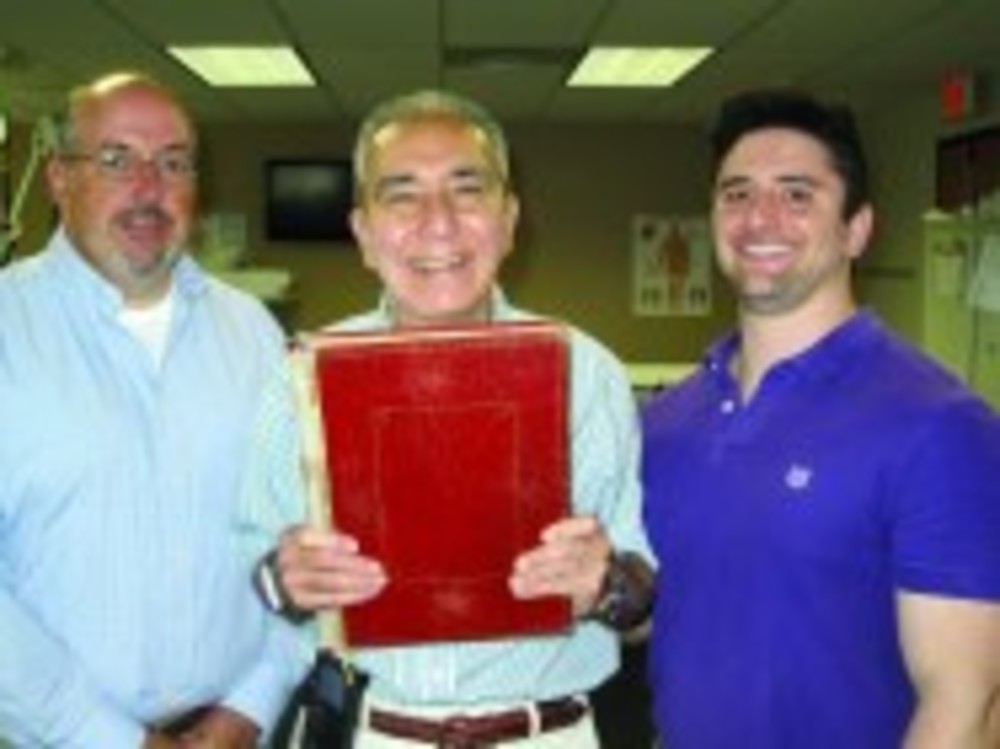Liberty Physical Therapy addresses patients’ needs
 PROVIDENCE – Two entities, Liberty Physical Health (“Liberty”) and Handel Center (“Handel”), collaborate to bring medical care to their patients (see related story, “Offering pain relief … with injections” at page 34).
PROVIDENCE – Two entities, Liberty Physical Health (“Liberty”) and Handel Center (“Handel”), collaborate to bring medical care to their patients (see related story, “Offering pain relief … with injections” at page 34).
John McLinden, Liberty’s president and co-founder, explained that the two companies, while independent, work closely together. Each practice refers patients to the other, as appropriate.
Does a prospective client of Liberty Physical Health have to be referred by a physician? “Legally, they can come in and be seen,” said McLinden, who is an associate professor of physical therapy at the University of Rhode Island, “but certain insurance [companies] like Medicare require a doctor’s referral.”
Although most of their patients seek relief from spine-related pain, Marc Bochner, DPT (doctor of physical therapy), added that they treat any patients who have chronic pain – pain lasting three or four months.
What can a new patient expect?
“We’ll review all the medical history; we make this an environment [that is] comfortable to talk to us, with open lines of communication,” said Bochner, adding that the physical therapist will also “do an objective measurement of [the patient’s] strength and range of motion.” The patient and the therapist, together, make a treatment plan based on the patient’s goals and objectives.
While a typical course of treatment may last four to six weeks – with the patient doing exercises at home during and after the course of treatment – situations vary, depending on the patient and the past medical history, said Bochner.
Not all patients are typical: Father Joe Haggar, a Catholic priest, has been treated at Liberty three times each week for the past three years. Each visit, Father Joe said, lasts about three hours.
Slight, soft-spoken and looking younger than his 73 years, Father Joe said that a fall he took in 2009 left him with a ruptured rotator cuff, a torn biceps tendon, a torn deltoid muscle and a broken humerus.
“I was a mess,” he said, in a post-treatment interview.
Explaining that his preexisting medical conditions made shoulder surgery too dangerous, he was referred to Handel, who provided cortisone shots and trigger point shots, and then to Liberty. Asserting that his life has improved immensely since getting treatments, Father Joe said, “Marc is very accommodating, he has sympathy. My pain is reduced; I sleep better and can maneuver better.”
The practice has locations in Providence and Cranston; many post-surgical or osteoarthritic patients benefit from reconditioning in the pool in Cranston, said McLinden, who holds a master’s of physical therapy.
Asked about new developments, McLinden said, “[It’s] at a level of evidence-based practice … We’re looking at the literature and gravitating toward those treatments,” including, manual therapy treatments and evaluating the whole person. If someone comes in with knee pain, the pain could originate from an injury somewhere else, he said. “Our job as experts of movement is to be able to determine what the driving force of the problem is.”
As for referrals to other practices, McLinden said, “Part of being a clinician is knowing when to refer the patient to another practitioner when appropriate … could be a surgeon, possibly a pain management physician or a massage [therapist].”
Of the 15-year-old firm, McLinden said, “We strongly subscribe to clinical care that’s evidence-based. We have a strong teaching program that takes interns and … [we evaluate] research.”
Bochner, who studied under McLinden at URI, said, “We want to make a difference in [patients’] lives. We’re not here to pack in the clinic. I have some patients who’ve gone through physical therapy and call me later to ask something. It’s not ‘one and done.’”
“Chronic pain,” said McLinden, “can be potentially draining. We want to create a sense of possibility for a patient’s progress; that’s what it’s all about.”
This is one of an occasional series of articles about local businesses, some of which advertise with The Jewish Voice.
Liberty Physical Health:
100 Highland Ave.,
Suite 305
Providence
865-6940
1528 Cranston St., Cranston
228-7216
libertypt.com.







